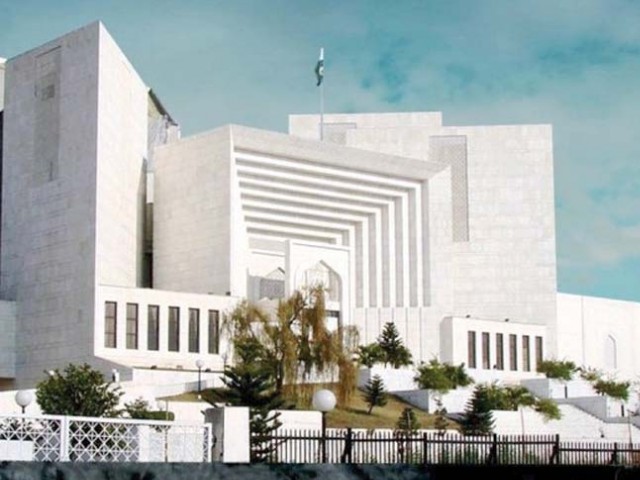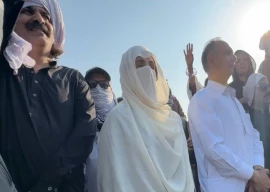
The court has also observed that if the omissions in the Sindh High Court’s November 28, 2017 order were inadvertent, then the same were unfortunate. However, if the omissions were deliberate, then they were nothing but outrageous.
SC has no jurisdiction to interpret Election law in Islamic context: CJP
After the incident “this court had taken suo motu notice of the matter through Constitution Petition No: 1 of 2013, and this court remained seized of those proceedings under Article 184(3) of the Constitution till a Challan of the case was submitted by the local police before an anti-terrorism court. That suo motu case was finally disposed of by this court on 22.02.2013”.
The court observed that a bare reading of the said order shows that this court had not only blessed submission of the Challan of the case before the ATC but it had issued detailed guidelines as to how the case was to be tried by the relevant Anti-Terrorism Court and as to how such trial was to be monitored by the monitoring judges of this court and the high court vis-à-vis cases of terrorism.
It was clearly observed by this court that the trial of the case had to be conducted strictly in accordance with the provisions of the Anti-Terrorism Act, 1997 and the guidelines issued by this court in that regard.
“It is quite unfortunate that no mention of that order passed by this court on 22.02.2013 in Constitution Petition No: 1 of 2013 had been made by the high court in its order dated 28.11.2017”, says the order.”
The court observed that those suo motu proceedings conducted in the matter were not challenged by any party through a review petition and, thus, this court’s opinion that the relevant criminal case involved questions of public importance with reference to the enforcement of some fundamental rights conferred by Chapter I of Part II of the Constitution so as to attract the jurisdiction of this court under Article 184(3) of the Constitution remained unchallenged.
“If at an earlier stage of this very criminal case suo motu proceedings under Article 184(3) of the Constitution were in order before this court, then there may not be any impediment in taking suo motu notice of any subsequent development in the same case.
“Apart from that the jurisdiction of this court under Article 184(3) of the Constitution is an independent original jurisdiction which is not affected by pendency of any matter on the same subject matter before any other court or forum or even by a prior decision of the same issue by any other court or forum below,” says the 14-page judgment, authored by Justice Asif Saeed Khosa.
The order further says that the SHC in its November 28, 2017, had twice reproduced the words “as the question of jurisdiction can now well be agitated before the appellate court seized of the matter” which appeared only as part of a sentence used by this court (SC) in its suo motu order dated 21.10.2013.
SC to hear LNG corruption case against PM Abbasi from February 12
“That part of the sentence used by this court in that order was utilised by the high court as an authorisation from this court to the high court to reopen and reconsider the issue pertaining to the jurisdiction of the anti-terrorism court to try the relevant criminal case. That impression gathered or conjured up by the High Court was, however, nothing but erroneous and misconceived,” it adds.
The court also said that the order regarding a party to a case agitating a matter before the high court could not be taken or understood by the high court as a licence or authorisation from this court to ignore an earlier order passed by this court finally clinching an issue and still holding the field.
“It has, thus, not surprised us that the learned attorney general for Pakistan and the learned additional prosecutor general, Sindh have refused to support the order passed by the Sindh High Court, Karachi on 28.11.2017,” it adds.
In the said order dated 28.11.2017, the high court had completely omitted from consideration that soon after taking place of the occurrence of the case, this court had taken suo motu notice of the matter through Constitution Petition No: 1 of 2013 while exercising its jurisdiction under Article 184(3) of the Constitution.



1732626034-0/BeFunky-collage-(92)1732626034-0-165x106.webp)



1732621030-0/Express-Tribune-(7)1732621030-0-270x192.webp)
1732622842-0/Express-Tribune-(9)1732622842-0-270x192.webp)

1725254039-0/Untitled-design-(24)1725254039-0-270x192.webp)






COMMENTS (2)
Comments are moderated and generally will be posted if they are on-topic and not abusive.
For more information, please see our Comments FAQ